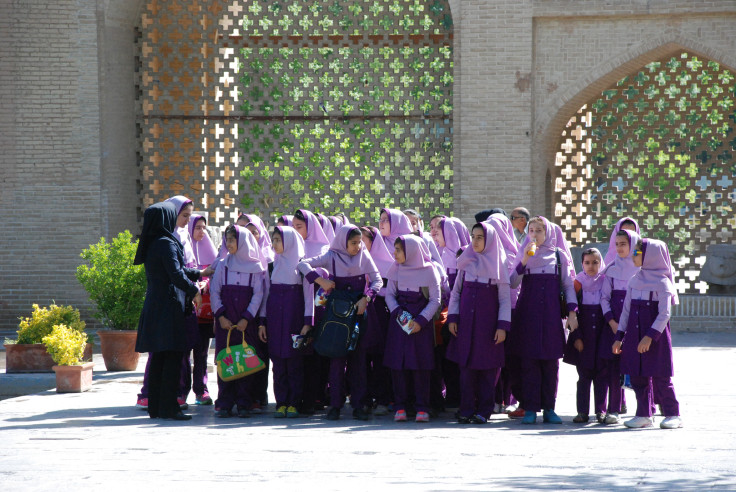More than 5,000 school children poisoned in Iran, says official
The claims have been made by a member of a parliamentary fact-finding committee established to investigate the reports.

The Iranian government was forced to launch an inquiry after several reports claimed that hundreds of schoolgirls were being poisoned for taking part in protests against the mandatory hijab policy.
Now, a member of a parliamentary fact-finding committee set up to probe the claims has said that "more than 5,000 schoolgirls and boys" were poisoned across 25 provinces.
The claims have been made by Mohammad-Hassan Asafari and have come to light a day after Iran's supreme leader, Ayatollah Ali Khamenei, publicly acknowledged the reports. "Twenty-five (out of 31) provinces and approximately 230 schools have been affected, and more than 5,000 schoolgirls and boys poisoned," Asafari was quoted as saying by AFP.
"Various tests are being carried out to identify the type and cause of the poisonings. So far, no specific information has been obtained regarding the type of poison used," he added.
Islamofascists in Iran are arresting the school girls who were poisoned by the Islamofascists.
— Mooniter (@Mooniter) March 4, 2023
IR: We poison you then we arrest you & the world doesn't take strong actions so we do it again, again, and again. #SaveIranianSchoolGirls#IranRevoIution
pic.twitter.com/uI50upsuh4
Do you know what is the motive behind the poisoning of school girls in Iran?
— Masih Alinejad 🏳️ (@AlinejadMasih) March 3, 2023
Listen to this speech of Ali Khamenei after the killing of Mahsa Zhina Amini, on Oct 3rd, two weeks after she was killed.
He says, we must "punish" these teenagers.
This is how they are punishing the… https://t.co/lzJFVZaxJ2 pic.twitter.com/eAOiwBRVyN
The authorities have been able to arrest several people as the investigation into the case continues. "Based on the intelligence and research measures of the intelligence agencies, a number of people have been arrested in five provinces, and the relevant agencies are conducting a full investigation," deputy interior minister Majid Mirahmadi told state television.
However, the authorities have not revealed the identities or motives of the alleged perpetrators. There is also no information as to how the girls were poisoned.
The Iranian Interior Ministry said that one of the people arrested for the crime used his own child to insert the "irritant" into the school. He even recorded videos of sick children and sent them to media houses.
Meanwhile, Khameni has said that there will be no amnesty for the people behind the crime. "If the poisoning of students is proven, those behind this crime should be sentenced to capital punishment, and there will be no amnesty for them," he said, according to the state-run IRNA news agency.
Last week, Iran's deputy health minister, Younes Panahi, confirmed reports of the poisoning of schoolgirls. The reports had emerged from the holy city of Qom and the city of Borujerd, but mainly from Qom, which is home to Iran's clergy and theological seminaries. The investigation into the matter was launched only after parents held protests outside the governor's office in Qom.
The students were found to have symptoms such as shortness of breath, nausea, and vertigo. They had also reportedly complained of experiencing "unpleasant" odours on school premises.
The incident has sparked international outrage, with the United Nations and the United States calling for an independent investigation into the matter.
Several videos of schoolgirls coughing and struggling to breathe as they are escorted out of school to be taken to hospitals have made it to social media platforms. However, no deaths have been reported so far.
The reports of schoolgirls being poisoned come against the backdrop of Iran witnessing massive protests over the death of a young woman named Mahsa Amini.
It may be remembered that the protests started back in September following the death of Amini. She died shortly after being beaten while in the custody of the country's morality police, who arrested her for breaching laws pertaining to the hijab. Her death sparked protests all over the country as well as in Iranian communities abroad.
The Iranian regime has taken all sorts of measures to quell the protests but to no avail. The crackdown on activists and protesters has only strengthened Iranians' resolve to continue their fight against conservatism.
Cultural restrictions have been a regular feature of Iranian life since the 1979 Islamic Revolution. The state's morality police roam the streets and have the right to arrest women who are not wearing a hijab and detain men with unconventional hairstyles.
The mandatory dress code requires women to cover their hair and neck with a headscarf. The morality police, formally called "Gasht-e Ershad" (Guidance Patrols), have the power to stop and detain women whom they think are not properly dressed.
© Copyright IBTimes 2025. All rights reserved.






















